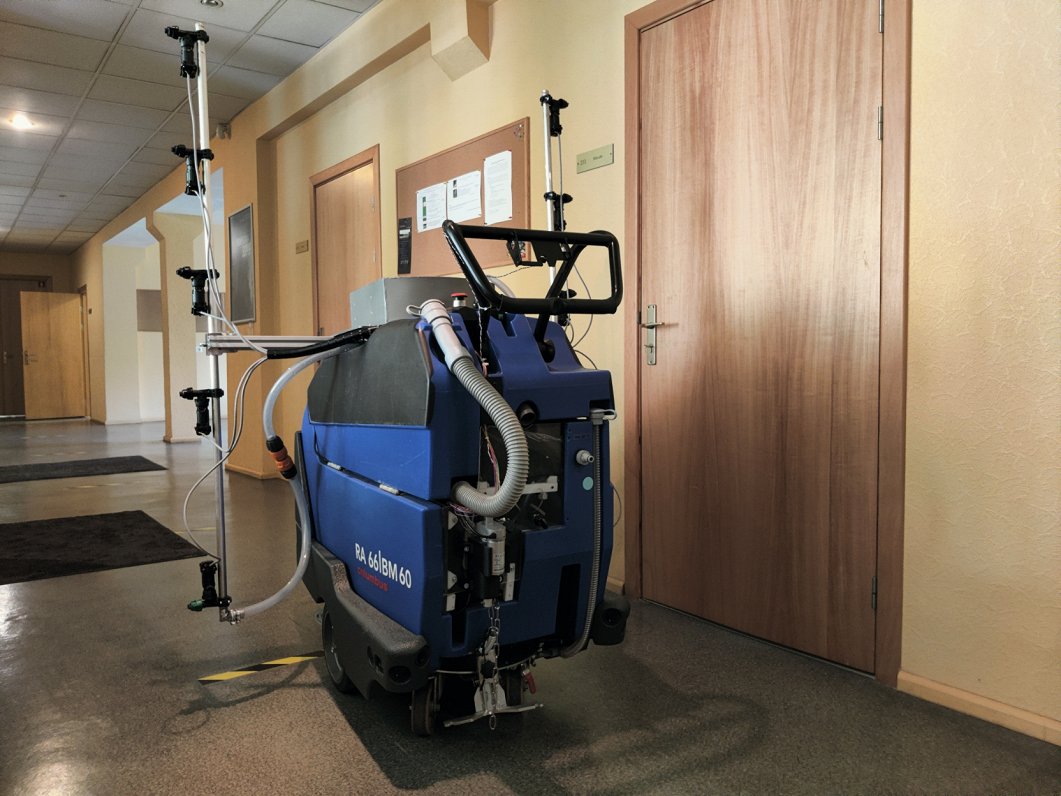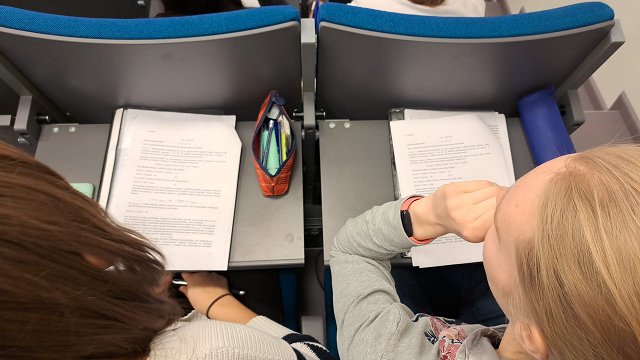Scientists from four Latvian universities and five scientific institutes have come together for these projects.
It is a unique situation that scientists have succeeded in developing technological solutions in such a short time to such a level that they can be introduced into production and used. Scientists have designed three devices over five months for the disinfection of premises and persons.
"Mobile robot for surface disinfection, disinfection gates, and equipment for air and surface disinfection with ultraviolet radiation and ozone.
"Equipment for air disinfection is intended for disinfecting large spaces. Those machines that are currenty on sale, many are open and ultraviolet radiation goes into human eyes, and if a person looks directly [at them], [they] can damage vision. In our installation, all those lamps are hidden, [revealed] just a little where the air comes in and out. But it's a reflected light, it's not direct radiation, "said Andris Martinovs, professor of the Rēzekne Academy of Technology.
Scientists have also created disinfectant gates that convert hypochlorous acid into steam by ultrasound. The gates are triggered by sensors, and the person does not have to press buttons. The equipment will be useful in places where staff still use bottles for disinfection, at risk of becoming infected from a collectively used object.
In an infectious environment, a special robot with a surface recognition system will work instead.
"A robot transports all systems and allows them to automatically spray disinfectant where it is most needed. For example, on handles, light switches. The added value is in the vertical surface [disinfection] thanks to nozzles. The nozzle mechanism can be supplemented with other mechanisms and attention can be paid to specific elements in hallways or industrial spaces," said Agris Ņikitenko, dean of the Riga Technical University (RTU) Computer Science and Information Technology faculty.
The prototypes of the equipment are joint work of four scientific institutions – RTU, the Institute of Electrical and Computer Sciences, the University of Latvia Atomic Physics and Spectroscopy Institute, as well as Rēzekne Academy of Technology.
"If there is a need, real demand, Latvian scientists are able to mobilize in a very short time and reach a very specific result," said Tālis Juhņa, RTU Prorector of Sciences.
Scientists are also developing new types of face masks and protective clothing, as well as prototypes for special coatings that will kill bacteria and viruses on different surfaces.



























